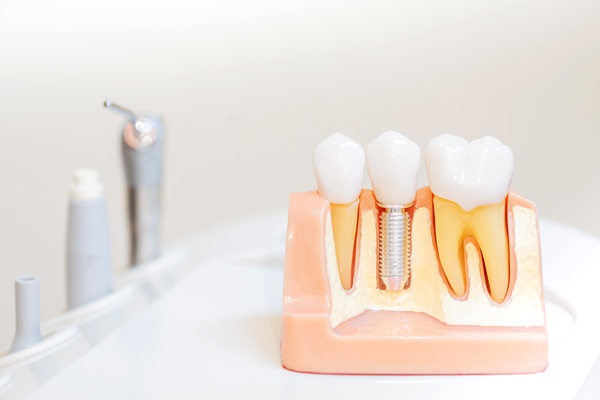An Oral Surgeon answers: How Can I Avoid Infection After Dental Procedures?

Infections after dental procedures occur frequently and that is primarily due to a lack of education on how to avoid it, however, with the help of an oral surgeon, infections can be avoided in a few ways. Oral surgeons are dental professionals who focus on invasive procedures that are necessary in order to treat or remedy a disease within the mouth.
Keep reading to find out how an oral surgeon answers the question of avoiding infection after a dental procedure.
Specific dental services
Wondering what specific services an oral surgeon provides to their patients? Some of the more common surgical procedures include placing dental implants, removing wisdom teeth, performing emergency oral surgery, performing cosmetic surgery and full mouth reconstructions.
When a general dentist finds any signs of oral cancer in one of their patient's mouth, they will also refer their patient to an oral surgeon so they can understand their treatment options. They are also the go-to dentist for patients who have been diagnosed with a dental-related disease, defect or have undergone a significant injury that requires dental surgery.
Because oral surgeons specialize in invasive dental procedures, they are great specialists to talk to about infection prevention. Each dental procedure is different but with certain aftercare tips for each one, infections can be avoided.
Aftercare for dental procedures
Every oral surgery requires aftercare so that the patient can expect a full recovery. Aftercare instructions are given to each individual patient, of which all need to be closely followed so that they do not experience any complications related to the surgery.
General aftercare instructions include things like taking pain medication, protecting the blood clot, using ice packs and proper oral hygiene regardless of the injury. However, the oral hygiene part of aftercare may be altered in order to avoid pain or irritation.
Avoiding smoking cigarettes is included in every patient's aftercare instructions, as the chemicals within cigarettes increase a patient's risk of infection.
How to avoid infections
Dental patients can avoid infection after having a surgical dental procedure performed by closely following the aftercare instructions given to them by their oral surgeon. While part of the instructions are general instructions that are given to all patients, every patient will also receive specific instructions geared towards their particular situation.
Most of the time, the best way to prevent an infection is to simply maintain good hygiene and follow up with the oral surgeon regularly so that they can maintain the healing process.
Ready to make an appointment?
Ready to schedule an appointment with our oral surgeon? Your first step is contacting us now to make an appointment for an overall evaluation. If you are not sure whether or not you are in need of oral surgery, then making an appointment with us now will let you know the current state of your particular situation. Our oral surgeons will always guide you in the right direction, which is especially important when you happen to be experiencing one or more oral issues.
Request an appointment here: https://spectrumsurgical.net or call Facial Spectrum at (816) 524-4334 for an appointment in our Lee's Summit office.
Check out what others are saying about our dental services on Yelp: Oral Surgery in Lee's Summit, MO.
Recent Posts
Dental implants represent a durable and aesthetically pleasing solution for replacing missing teeth. Understanding the proper care for dental implants remains essential to ensure longevity and optimal function. Adhering to recommended practices significantly reduces the risk of complications, preserves oral health, and maintains the attractive appearance and comfort associated with implants. By implementing consistent maintenance…
The jawbone is the part of the face that holds many essential elements together, such as the teeth, ligaments, and muscles; however, bone grafting may sometimes be necessary if the jawbone is too weak to perform these tasks. A person’s jawbone can deteriorate over time, whether due to age, genetics, poor oral health, cancer, or…
Finding lasting relief from issues such as misalignment and facial asymmetry can involve specialized procedures. Fortunately, corrective jaw surgery is a reliable option for addressing these concerns. A dental specialist realigns the upper or lower jaw during this process to promote better function and comfort. Although the procedure can benefit health and appearance significantly, a…
Many individuals seek rhinoplasty to enhance facial harmony, improve nasal function, or correct structural abnormalities. As a surgical procedure that reshapes the nose, rhinoplasty can address aesthetic concerns as well as breathing difficulties caused by structural defects such as a deviated septum. Understanding the consultation process, surgical techniques, and what to expect from the recovery…


